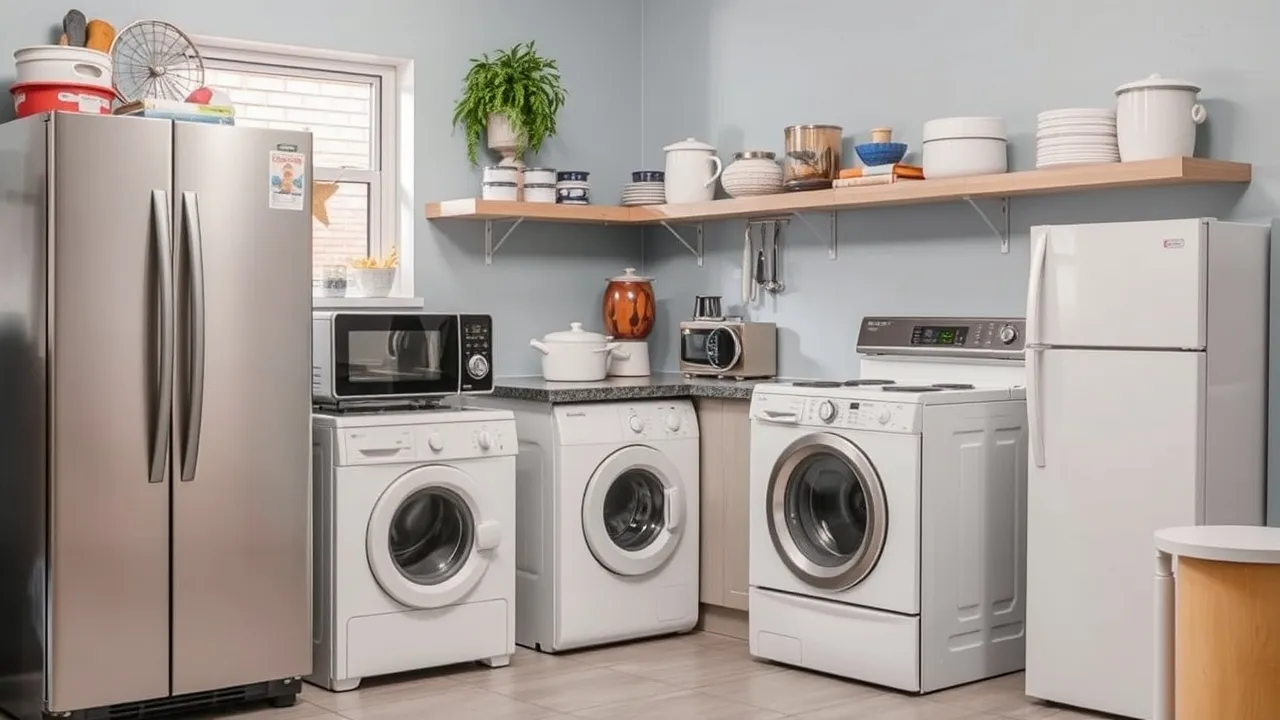When it comes to home repairs, the age-old question of whether to tackle the project yourself or hire a professional always arises. Making an informed decision is crucial, as it can save you time, money, and potential headaches down the line. There are several factors to consider before making a choice, including the complexity of the repair, your skill level and experience, safety considerations, cost implications, time and efficiency considerations, permits and codes, the risks of DIY mistakes and errors, and knowing when to call in the experts.
Key Takeaways
- DIY repairs can save money, but may not be the best option for complex repairs.
- Assess your skill level and experience before attempting a repair.
- Safety should always be a top priority when doing home repairs.
- The cost of DIY vs hiring a professional should be carefully considered.
- Time and efficiency should also be taken into account when deciding whether to DIY or hire a pro.
Understanding the Complexity of the Repair
One of the first factors to consider when deciding whether to DIY or hire a professional is the complexity of the repair. Some repairs may be simple and straightforward, such as replacing a light fixture or fixing a leaky faucet. However, others may be more complex and require specialized knowledge and skills. For example, electrical work or plumbing repairs can be intricate and potentially dangerous if not done correctly.
In addition to complexity, it’s important to consider the tools and equipment required for the repair. Some repairs may require specialized tools that you may not have on hand. Purchasing these tools can add to the overall cost of the project. Furthermore, certain repairs may require heavy machinery or equipment that is best handled by professionals who are trained in their use.
Lastly, it’s important to assess the potential risks involved in attempting a DIY repair. If you’re not familiar with the proper safety precautions or techniques, you could put yourself at risk of injury. It’s crucial to consider whether you have the knowledge and skills necessary to mitigate these risks before deciding to tackle a repair on your own.
Assessing Your Skill Level and Experience
Honesty about your skill level is essential when deciding whether to DIY or hire a professional. While it may be tempting to take on a project yourself to save money, it’s important to recognize your limitations. If you don’t have the necessary skills or experience, attempting a repair could lead to costly mistakes or even further damage to your home.
Consider the experience required for the repair at hand. Have you successfully completed similar projects in the past? Do you have a solid understanding of the techniques and materials involved? If not, it may be best to leave the repair to a professional who has the expertise and experience to get the job done right.
Not having the necessary skills and experience can have serious consequences. Improperly executed repairs can lead to further damage, safety hazards, or even voided warranties. It’s important to weigh these potential consequences before deciding whether to DIY or hire a professional.
The Importance of Safety in Home Repairs
| Metrics | Importance |
|---|---|
| Number of injuries caused by home repairs | High |
| Cost of medical bills due to injuries | Expensive |
| Days of work missed due to injuries | Significant |
| Number of fatalities caused by home repairs | Tragic |
| Importance of following safety guidelines | Crucial |
Safety should always be a top priority when it comes to home repairs. DIY repairs can pose significant safety risks if proper precautions are not taken. For example, electrical work can be dangerous if not done correctly, potentially leading to electrical shocks or fires. Similarly, working with power tools or heavy machinery without proper training can result in serious injuries.
Before attempting a DIY repair, it’s crucial to educate yourself on the necessary safety precautions and techniques. This may involve researching online, consulting instructional manuals, or even taking classes or workshops. It’s also important to ensure that you have the appropriate safety equipment on hand, such as goggles, gloves, and protective clothing.
Failing to prioritize safety can have severe consequences. In addition to potential injuries, improper repairs can lead to further damage to your home or even put your family at risk. It’s essential to consider these risks and take the necessary precautions before deciding whether to DIY or hire a professional.
The Cost of DIY vs Hiring a Professional
Cost is often a significant factor when deciding whether to tackle a home repair yourself or hire a professional. DIY repairs can be more cost-effective in some cases, as you only need to purchase the necessary materials and tools. However, it’s important to consider the quality of materials you’re purchasing and whether they are suitable for the repair at hand.
On the other hand, hiring a professional may come with a higher upfront cost, as you’ll need to pay for their services. However, professionals often have access to discounted materials and can ensure that the repair is done correctly the first time. This can save you money in the long run by avoiding costly mistakes or further damage.
It’s important to weigh the potential cost savings of DIY repairs against the potential risks and consequences. If you’re confident in your skills and experience, and the repair is relatively simple, DIY may be a cost-effective option. However, for more complex repairs or if you’re unsure of your abilities, it may be worth investing in a professional to ensure the job is done right.
Time and Efficiency Considerations

Another factor to consider when deciding whether to DIY or hire a professional is the time required for the repair. DIY repairs can often take longer than anticipated, especially if you’re learning new skills or techniques along the way. This can result in delays and setbacks, potentially leaving your home in disarray for an extended period.
On the other hand, hiring a professional can often expedite the repair process. Professionals have the necessary skills, experience, and tools to complete the job efficiently and effectively. This can save you time and minimize disruptions to your daily life.
Efficiency is another consideration when deciding whether to tackle a repair yourself or hire a professional. Professionals are trained to work quickly and efficiently, ensuring that the repair is completed in a timely manner. DIY repairs may take longer due to trial and error or lack of experience, potentially leading to frustration and wasted time.
When Permits and Codes Are Involved
Certain repairs may require permits or need to adhere to local building codes. It’s important to research whether the repair you’re considering falls into this category. If permits or codes are involved, it may be best to hire a professional who has the expertise to navigate these legal requirements.
Failing to obtain the necessary permits or follow building codes can have serious consequences. You may face fines, have to redo the repair, or even face legal action. Professionals are familiar with the regulations and can ensure that the repair is done in compliance with all applicable laws.
Navigating permits and codes requires a certain level of expertise. If you’re not familiar with the process or the specific requirements, it may be best to leave it to a professional who can ensure that everything is done correctly and legally.
The Risks of DIY Mistakes and Errors
One of the potential downsides of DIY repairs is the risk of making mistakes or errors. Even with the best intentions, it’s possible to overlook important details or make incorrect assumptions. These mistakes can lead to further damage, safety hazards, or even costly repairs down the line.
Fixing mistakes can also be expensive. If you make an error during a DIY repair, you may need to purchase additional materials or tools to correct the problem. In some cases, you may even need to hire a professional to fix the mistake, resulting in additional costs.
Mistakes and errors can also pose safety risks. For example, if you incorrectly install electrical wiring, it could lead to electrical shocks or fires. It’s important to consider these potential risks before deciding whether to tackle a repair yourself or hire a professional.
Knowing When to Call in the Experts
Knowing when a repair is beyond your skill level is crucial for making an informed decision. There are certain signs that indicate it may be best to call in a professional. For example, if a repair involves structural changes or major renovations, it’s often best left to experts who have the necessary knowledge and experience.
Hiring a professional comes with several benefits. They have the expertise to assess the situation, provide accurate estimates, and complete the repair efficiently and effectively. They also have access to specialized tools and equipment that may be necessary for the job.
Failing to call in an expert when needed can have serious consequences. It can result in further damage, safety hazards, or even voided warranties. It’s important to recognize your limitations and seek professional help when necessary.
Making the Decision: DIY or Hire a Pro?
In conclusion, the decision of whether to tackle a home repair yourself or hire a professional should be made after careful consideration of all the factors. It’s important to assess the complexity of the repair, your skill level and experience, safety considerations, cost implications, time and efficiency considerations, permits and codes, the risks of DIY mistakes and errors, and knowing when to call in the experts.
By weighing these factors and making an informed decision, you can ensure that the repair is completed correctly and safely. Whether you choose to DIY or hire a professional, it’s important to prioritize safety and quality to protect your home and your investment.
If you’re facing a DIY repair dilemma and unsure whether to tackle it yourself or call in the professionals, check out this informative article on 911 Appliance’s blog. It provides valuable insights on when it’s best to call an expert for help. From understanding the risks of DIY repairs to recognizing the signs that indicate professional assistance is needed, this article covers it all. Don’t miss out on this essential read! Click here to access the article and make an informed decision about your repair needs.
What Repairs Should I Attempt to DIY and When Should I Call in a Professional?
When it comes to managing your budget for appliance repairs, it’s important to know which repairs you can attempt to DIY and when it’s time to call in a professional. Simple tasks like cleaning filters or replacing a light bulb can be done at home, but complex electrical or mechanical issues should be left to the experts.
Table of Contents
- Key Takeaways
- Understanding the Complexity of the Repair
- Assessing Your Skill Level and Experience
- The Importance of Safety in Home Repairs
- The Cost of DIY vs Hiring a Professional
- Time and Efficiency Considerations
- When Permits and Codes Are Involved
- The Risks of DIY Mistakes and Errors
- Knowing When to Call in the Experts
- Making the Decision: DIY or Hire a Pro?
- What Repairs Should I Attempt to DIY and When Should I Call in a Professional?
- FAQs
- What is DIY repair?
- What are the advantages of DIY repairs?
- What are the disadvantages of DIY repairs?
- When should I attempt a DIY repair?
- When should I call a professional for help?
- What are the benefits of hiring a professional?
- What are the drawbacks of hiring a professional?



